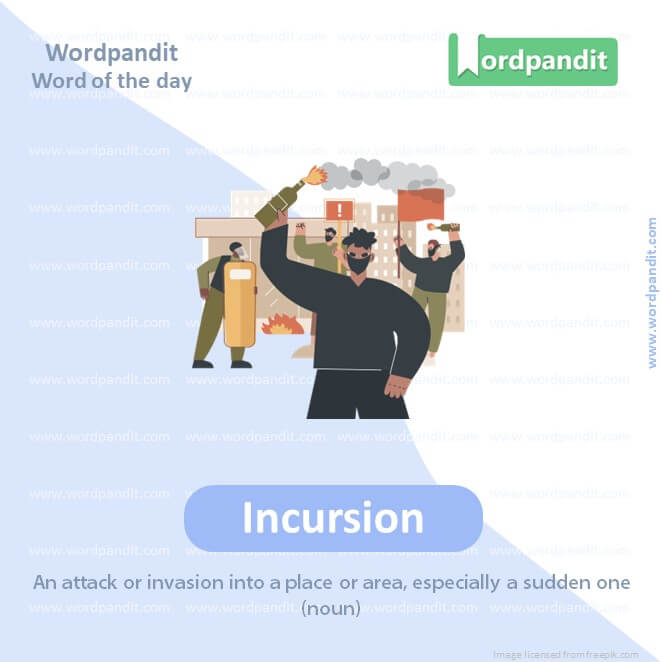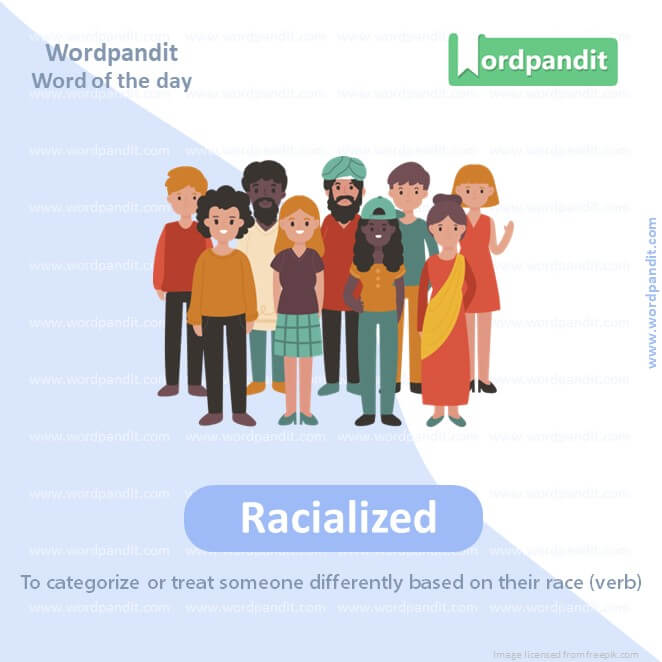Daily Vocabulary Words: List of Daily Used Words in Leading International Newspapers
Hi there. Welcome to this special section @ Wordpandit.
Our endeavour here is very simple: to highlight important daily vocabulary words, which you would come across in leading newspapers in the country. We have included the following newspapers in our selection:
• The New York Times
• The Washington Post
• Scientific American
• BBC
• The Guardian
• Psychology Today
• Wall Street Journal
• The Economist
We are putting in extensive work for developing your vocabulary. All you have got to do is be regular with this section and check out this post on a daily basis. This is your repository of words that are commonly used and essentially, we are posting a list of daily used words. Hence, this has significant practical application as it teaches you words that are used commonly in leading publications mentioned above.
Visit the website daily to learn words from leading international newspapers.

WORD-1: Intimidation
CONTEXT: Chutkan’s gag order tried to balance Trump’s First Amendment rights to assail the prosecution with the need to protect witnesses and court personnel from intimidation and potential violence.
SOURCE: Washington Post
EXPLANATORY PARAGRAPH: Imagine someone is trying to make you feel scared on purpose, like a big bully who makes mean faces to make you afraid. That’s what intimidation is. It’s when someone tries to frighten someone else, often to make them do something.
MEANING: The act of frightening someone to make them do what you want (noun).
PRONUNCIATION: in-tim-i-day-shun
SYNONYMS: Coercion, Bullying, Threatening, Terrorizing, Menacing
USAGE EXAMPLES:
1. The bigger kids’ intimidation of the younger ones at school was a big problem.
2. Her boss’s intimidation tactics made her feel uncomfortable at work.
3. Intimidation is not a good way to make friends.
4. The cat’s intimidation of the new puppy was evident by its arched back and hissing.

WORD-2: Incursion
CONTEXT: The incident marks a significant escalation, as it represents Israel’s deepest incursion into Lebanese territory since 8 October and its most significant attack since July 2006.
SOURCE: Guardian
EXPLANATORY PARAGRAPH: Think of incursion like a surprise visit, but not a fun one. It’s when people or things suddenly go into a place where they shouldn’t be, like a group of ants invading your picnic.
MEANING: An attack or invasion into a place or area, especially a sudden one (noun).
PRONUNCIATION: in-kur-shun
SYNONYMS: Invasion, Raid, Infiltration, Foray, Intrusion
USAGE EXAMPLES:
1. The soldiers made an incursion into enemy territory.
2. The incursion of rabbits into the garden destroyed many plants.
3. The unexpected incursion of privacy was upsetting.
4. The incursion of technology into our daily lives is increasing.
WORD-3: Inauspicious
CONTEXT: Cannon got off to an inauspicious start when, at the outset of the classified-documents case, she took the extraordinary step of naming a special master to oversee the government’s review of the documents the FBI seized.
SOURCE: Washington Post
EXPLANATORY PARAGRAPH: If something is inauspicious, it’s like a sign that things might not go well. It’s the opposite of having a good feeling about something, like when the sky is full of dark clouds and you think it might rain on your parade.
MEANING: Suggesting that the future will not be good or successful (adjective).
PRONUNCIATION: in-aw-spish-us
SYNONYMS: Unlucky, Ominous, Unfavorable, Unpropitious, Bleak
USAGE EXAMPLES:
1. The black cat crossing the road was considered inauspicious.
2. They started their trip on an inauspicious day.
3. The inauspicious weather made the sailors nervous.
4. Her inauspicious start at the new job worried her.

WORD-4: Racialized
CONTEXT: D.E.I. is “bad” because it supplants merit for diversity and it empowers the racialized federal government to stick its hands into an institution that produces the cultural elite.
SOURCE: New York Times
EXPLANATORY PARAGRAPH: Racialized is when people are treated differently because of their race, which is the color of their skin or where their family comes from. It’s like if someone decided what you can do or what you’re like just because of how you look.
MEANING: To categorize or treat someone differently based on their race (verb).
PRONUNCIATION: ray-shuh-lized
SYNONYMS: Stereotyped, Categorized, Classified, Segregated, Discriminated
USAGE EXAMPLES:
1. The racialized policies in the company were unfair.
2. She spoke out against the racialized treatment she experienced.
3. Racialized perceptions can lead to misunderstandings.
4. The debate focused on the effects of racialized thinking.

WORD-5: Meritorious
CONTEXT: whether higher education is less meritorious now than it was in some unspecified past cannot be measured.
SOURCE: New York Times
EXPLANATORY PARAGRAPH: When something is meritorious, it’s really good and deserves praise or a reward. It’s like getting a gold star for doing a great job on your homework.
MEANING: Deserving reward or praise because of being very good or valuable (adjective).
PRONUNCIATION: mer-i-toar-ee-us
SYNONYMS: Praiseworthy, Commendable, Admirable, Laudable, Deserving
USAGE EXAMPLES:
1. Her meritorious service earned her a medal.
2. The scientist received an award for his meritorious research.
3. They acknowledged his meritorious efforts in community service.
4. The judge recognized the meritorious conduct of the citizen.
WORD-6: Iteration
CONTEXT: Trump 2.0 will be more focused and more capable than the initial iteration.
SOURCE: New York Times
EXPLANATORY PARAGRAPH: Iteration is like doing something over and over again with some little changes each time. It’s like when you draw a picture, then try to draw it again but a little better each time.
MEANING: The act of repeating a process with changes each time to improve it or reach a goal (noun).
PRONUNCIATION: it-er-ray-shun
SYNONYMS: Repetition, Version, Cycle, Recurrence, Variation
USAGE EXAMPLES:
1. Each iteration of the software had new features.
2. The third iteration of the experiment finally succeeded.
3. They discussed the latest iteration of the plan.
4. Her design improved with every iteration.

WORD-7: Ginning
CONTEXT: Rufo explained his plan for ginning up controversy about higher education’s most prestigious universities in an interview on the heels of Dr. Gay’s resignation, explaining that it was a coordinated, strategic attack that used narrative, financial and political leverage.
SOURCE: New York Times
EXPLANATORY PARAGRAPH: Ginning is a process used to clean cotton. After picking cotton from plants, it still has seeds and bits in it. Ginning helps to take out all these extras so that the cotton is clean and ready to be used for making things like clothes.
MEANING: The process of separating cotton fibers from their seeds (noun).
PRONUNCIATION: gin-ning
SYNONYMS: Processing, Cleaning, Extracting, Separating, Refining
USAGE EXAMPLES:
1. The ginning of cotton is an important step in textile production.
2. After harvesting, the cotton goes through ginning.
3. Ginning machines have improved a lot over the years.
4. They visited a factory to see the ginning process.
WORD-8: Ostensibly
CONTEXT: A hearing ostensibly about antisemitism on campus quickly became little more than a coordinated political spectacle about power.
SOURCE: New York Times
EXPLANATORY PARAGRAPH: Ostensibly is like saying something seems one way, but it might not actually be that way. It’s like if you said you cleaned your room, but you just shoved everything under the bed. It looks clean, but it really isn’t.
MEANING: Appearing to be true, but maybe not actually being that way (adverb).
PRONUNCIATION: os-ten-suh-blee
SYNONYMS: Apparently, Seemingly, Supposedly, On the surface, Outwardly
USAGE EXAMPLES:
1. He was ostensibly working, but actually he was playing games.
2. The trip was ostensibly for business, but it was mostly for pleasure.
3. Ostensibly, the movie was a comedy, but it had a serious message.
4. She was ostensibly the leader, but others were making decisions.
WORD-9: Resentment
CONTEXT: It is most galling at the most prestigious institutions, where status granted without concern for merit breeds resentment.
SOURCE: New York Times
EXPLANATORY PARAGRAPH: Resentment is feeling upset or angry because you think something is unfair. It’s like feeling mad at your friend for getting a bigger piece of cake than you, even though you both wanted the same amount.
MEANING: The feeling of being angry or upset about something you think is unfair (noun).
PRONUNCIATION: ree-zent-ment
SYNONYMS: Bitterness, Grudge, Animosity, Discontent, Ill will
USAGE EXAMPLES:
1. He felt resentment towards his boss for not getting a promotion.
2. Resentment grew among the team members over the unequal treatment.
3. She harbored resentment for years after the argument.
4. Resentment can poison a relationship if not addressed.
WORD-10: Antisemitism
CONTEXT: A hearing ostensibly about antisemitism on campus quickly became little more than a coordinated political spectacle about power.
SOURCE: New York Times
EXPLANATORY PARAGRAPH: Antisemitism is when people are mean or unfair to Jewish people just because they are Jewish. It’s not okay to treat someone badly because of their religion or where they come from.
MEANING: Hostility, prejudice, or discrimination against Jewish people (noun).
PRONUNCIATION: an-tee-sem-i-tiz-um
SYNONYMS: Prejudice, Bias, Hatred, Bigotry, Discrimination
USAGE EXAMPLES:
1. Antisemitism has no place in a respectful society.
2. The history of antisemitism is long and tragic.
3. Educating people about antisemitism is important to combat it.
4. The museum had an exhibit on the effects of antisemitism.
Vocabulary Words for IELTS'
Preparing for an esteemed examination like IELTS urges a diligent focus on ‘vocabulary words for IELTS’. These specific words, frequently prominent in IELTS examinations, play a vital role in expressing ideas effectively and articulately. To successfully conquer ‘vocabulary words for IELTS’, a strategic and focused approach is quintessential.
A fundamental step when learning ‘vocabulary words for IELTS’ is understanding these words in the context of use. For this, exposure to diverse resources like newspapers, journals, academic texts, and digital content is crucial. This engagement aids in understanding the nuances of these words, fortifying your preparation for ‘vocabulary words for IELTS’.
When tackling ‘vocabulary words for IELTS’, regular practice is the cornerstone of success. Consistent writing and speaking exercises help in embedding this vocabulary in your linguistic repertoire. Take situations or topics that commonly appear in the IELTS exam and practice crafting complex yet coherent sentences using these words.
In the journey to unfold ‘vocabulary words for IELTS’, making use of memory-enhancement techniques can orchestrate your success. Tools like flashcards and recall-based applications can significantly assist in retaining and reinforcing these words in your memory. Additionally, forming personal connections or stories with these words can greatly improve word recall.
Brevity is equally significant when preparing for ‘vocabulary words for IELTS’. Attempt to learn a limited number of words each day rather than tackling a large list all at once. This habit allows the brain adequate time to absorb and store these words securely, ensuring an effective learning experience.
In conclusion, the quest to master ‘vocabulary words for IELTS’ is an engaging dance of comprehension, practice, memory techniques, and thoughtful pacing. As you pirouette gracefully through these strategies, you’ll find communicating your IELTS responses with the right ‘vocabulary words for IELTS’ is less of a cliffhanger and more of an epic tale of language success.











